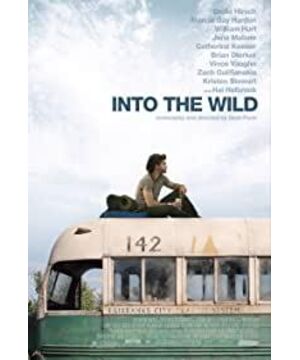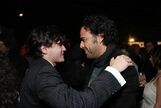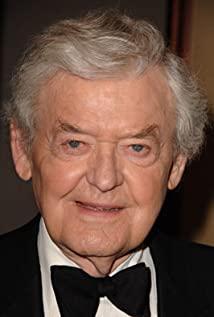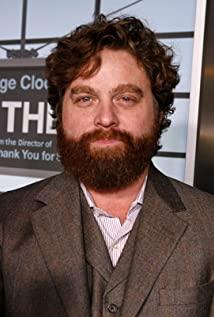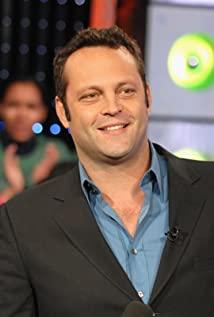I have a very simple logic. If a person wants A with all his heart, but because of his own wrong judgment, he strides in the direction of B, and eventually loses A, and cannot accept B calmly-this is called stupidity. In this story, A is life and B is death.
The moment Chris stepped on the Stampede Trail, he was doomed to die inside. The food (ten pounds of rice), clothes (non-waterproof hiking shoes, plus the boots given to him by the pickup truck driver), weapons (.22 rifle) he carried, it was impossible for him to survive in Alaska. When he walked into the mountains, did he plan to come out alive? Obviously. Otherwise, he would not leave a note for help.
He died without intending to die, and because he chose a path with a mortality rate of 100%. This is the fundamental reason why I don't give him any respect.
I'm not the one who says "what is wrong with people doing something to climb the mountain" or something like that. In fact, I am a considerable outdoor enthusiast myself. I was in Anchorage at the moment of writing this film review, and this is the third time I have come to Alaska in two years. I respect all climbers and mourn their (often occurring) accidents and deaths, because they use their lives as a bet to bet on even a tiny success rate. As long as this success rate is greater than zero, I will not judge anyone's original intention, let alone criticize him for death, because it is his own choice.
However, in this story, the success rate is completely zero.
In fact, when I first saw the movie, I didn't dislike this story until the end. If Chris could accept his impending death calmly before he died, I might even give this movie five stars. However, he did not at all. I don't have to nail the loser to the pillar of shame, but in the face of such self-inflicted failure, I have no other options.
Some people will say that the film only expresses a kind of value, and I should not reflect my opposition to this kind of value in the bad review of the film itself. And I want to say that this movie is obviously not just expressing values, but praising Chris' behavior.
Take a closer look at the misdeeds Chris committed in the past two years from graduation to death in Alaska. In Lake Mead, regardless of the clear "No driving outside the highway" sign, the car was forced to the riverside, and the car was eventually abandoned and walked. The pickup driver who took him to the Stampede Trail asked him if you want to hunt for a living there and if you have a Hunting License. His answer was "Hell no. How I feed myself is none of the government's business. Fuck their stupid rules. (Of course not. How I find food has nothing to do with the government. Fuck their stupid regulations.) "Working as a burger at McDonald's in Bullhead City, Arizona, he went to work barefoot without socks, and he didn't take a shower because he was homeless. I often show up in the restaurant with a bad smell, and I barely put on my socks until the manager reminds me. It's a pity that I don't like a person who behaves like this at all, I only have endless disgust. In the parks managed by the federal government, you are forbidden to drive indiscriminately in order to protect the natural environment; hunting requires a permit to control the hunting of wild animals and avoid excessive hunting to damage the ecological chain; McDonald’s requires employees to wear socks for the sake of protecting the natural environment. Hygiene, to protect the food safety of guests. These rules, as a normal member of a normal society, I support with both hands, and the attitude of Chris and his like is to fuck their stupid rules. Isn't this a complete anti-social personality? He thinks that he opposes all rules and gives himself personality, but he does not know that his repeated violations are infringing the rights of others, and he pretends to occupy the moral high ground.
Krakauer cited people who had similar experiences with Chris in the book. For example, this Carl McCunn ran to Brooks Range in the Arctic Circle to photograph wild animals with a summer's gear, but he forgot to ask someone to pick him up. The summer is about to end, this dear man is about to run out of ammunition and food, but no one will pass by in his area. Occasionally a plane flew by, and he slammed his right arm, hoping that the plane could call for rescue. In fact, the pilot did see him, but he only waved his right arm, which means "I'm fine" in the field distress gesture. Raising your arms means "SOS, I need emergency rescue." After the plane left and no one came for a few days, he discovered the mistake in his handbook. In the end, he struggled until November, pointed the gun at his head and pulled the trigger.
Krakauer said that Chris is different from these people. He is not a lunatic, but a pilgrim. Unfortunately, what I saw was a person who was lost in the modern bustling society and wanted to regain the enjoyment of life from the wilderness, but lost his life.
I have always been that humans should embrace nature more. But the biggest prerequisite for getting pleasure from nature is to respect nature. Walking into the deep mountains of Alaska in Chris's way is a complete contempt for nature, and nature will punish you in its way. As a half-hearted Buddhist enthusiast, I even agree that human beings should reduce their dependence on the material of modern society. However, throwing away everything on your body and burning all the cash just shows that you still care about them. It's like saying, as long as you have the idea of "I must forget my ex-girlfriend" in your mind, it means that you still care about her strongly. In this sense, Chris not only failed in his wild survival, but also failed in this attempt to sever the relationship with society and material.
The book states that after the first magazine article was published, the most criticism came from Alaska. The people here live in the severe cold that killed Chris every year. They are the people who know Wild best and have the most right to comment on this story. Their views can be summed up in seven words: if you don't die, you won't die. I am totally on their side.
I am in awe of all those who have the courage to take risks and explore the meaning of life, and give them all the blessings and respect. But for those who do not want to die but deliberately do so, I have only one word: yes. Thanks to Alaska for giving these people the most suitable and loyal ending to Darwin.
[Note: This is the original work of Nanpiao, the copyright belongs to him, but please contact me for reprinting in any form]
View more about Into the Wild reviews


